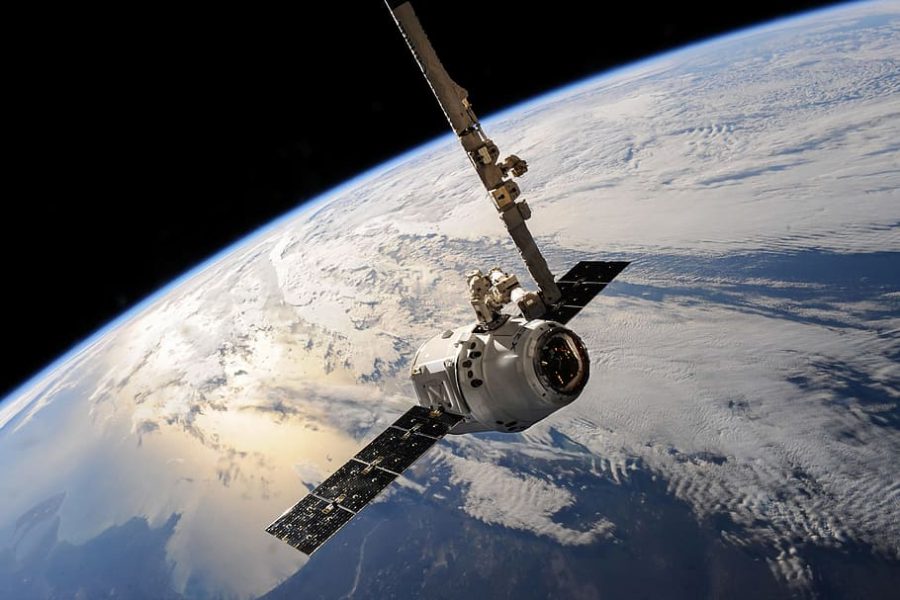Major efforts of humanity necessitate deep introspection
“Why?” becomes an increasingly crucial factor in humanity’s exploration of space
September 9, 2021
Over the weekend, I went camping. While my friend and I were out under the stars, our campfire crackled near our feet and marshmallows sizzled. Overhead, the Milky Way stretched out like a white speckled blanket with its corners pulled taut. A couple of exceptionally bright orbs stood out from the starscape and I wondered what they might be.
I had previously downloaded an app that utilizes your phone camera to identify whatever formation in the sky you direct it towards — Jupiter and Saturn ended up being the two shining bits that caught my eye.
It was amazing to see how the app could scan through the sky and detect the different constellations such as Cancer, Ares and the Big Dipper — which I would have otherwise never been able to identify with my naked eye. After admiring the stars in front of us, our group began to discuss the vastness of the universe and its infinite nature. The number of stars was humbling, it caused us to feel rather small in relation to our intergalactic existence.
As we discussed the various complexities of our universe, its ever-expanding nature and the amount of data we have collected in regards to outer space, I was led to a rather blunt question: What exactly do we do with all this information?
Now, this might seem to be grossly uninformed, oversimplified or even a stupid question. However, I do think this question is valid because we rarely spend time considering the big picture implications of our society’s goals in space and beyond.
This is not an attack on scientific inquiry. I am thrilled that so much has been learned in regards to the natural world around us. But, my question still stands. Why do we care to do it? How much does it really help the individual or world to know the resting temperature on Venus? Why should we trouble ourselves with this daunting knowledge when we are so small in comparison to the rest of our universe?
I do not claim to provide any answers in regards to this question, nor am I saying that there are none. More than anything, I would simply like to prompt the reader to think about the underlying drives by which we structure our human pursuits.
I think that it is critical that we take a step back from our daily rhythms which often do not provide space for contemplation and consider why we do what we do.
The practicality of considering the swaths of information we have about the universe was my jumping-off point for this piece. However, I suppose the underlying thought that I had can be applied to most things we hold dear in our daily lives. When looking at any collection of information or input which confronts us, we must be able to find within it use in our own individual lives. Further, we must find a use that is constructive and helps to foster growth. Overall, this is simply a reminder not to get caught up in doing things.
Above all else, let us not get caught up in doing things without knowing why we are doing them. We must always know why we act.
By focusing on the greater purpose of our actions and in what capacities they contribute to those around us, we can conduct ourselves in a more mindful, deliberate and impactful manner.












